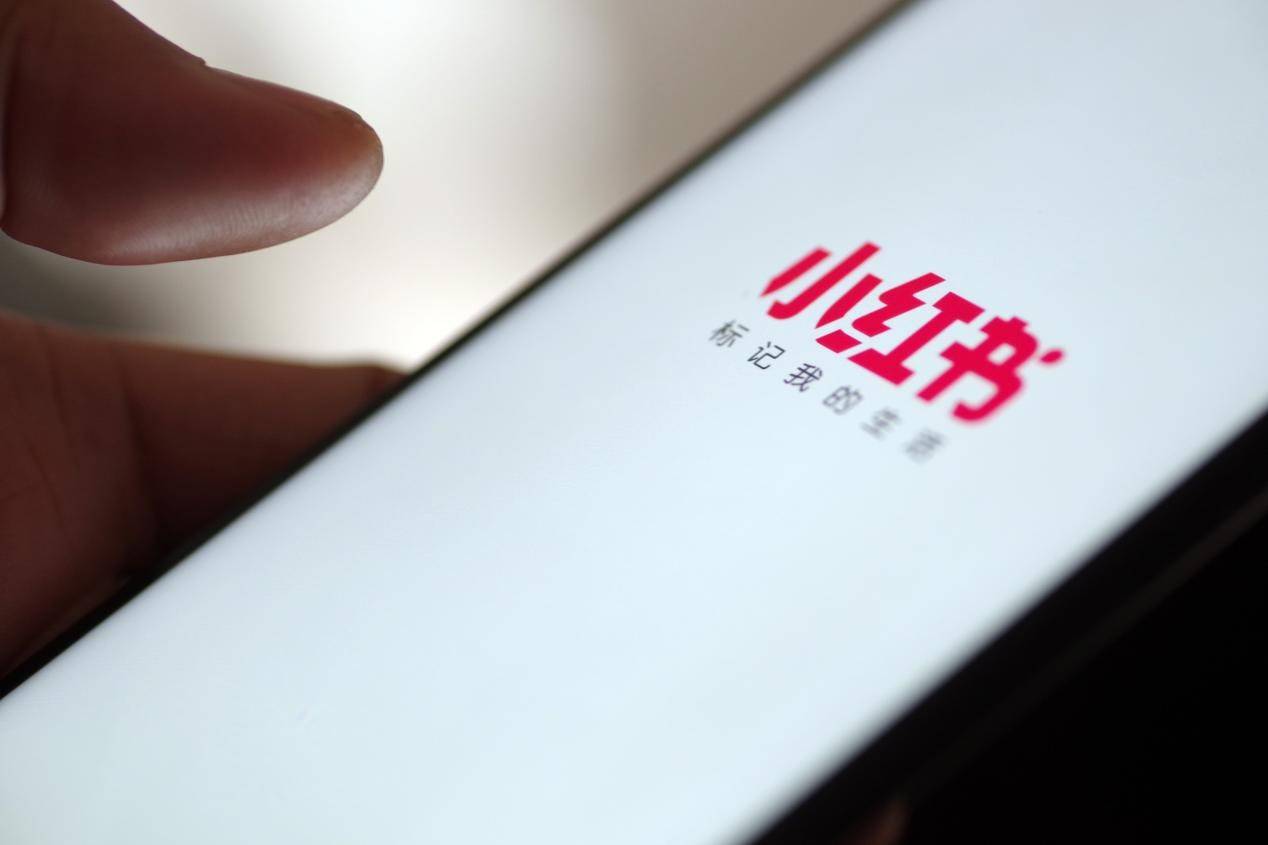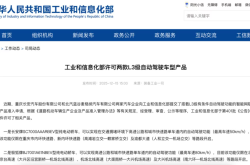Xiaohongshu cannot rely solely on the 'Grass Planting Economy'
![]() 10/21 2024
10/21 2024
![]() 637
637

Recently, rumors about Xiaohongshu's IPO have resurfaced, and although the company has declined to comment, such rumors are not uncommon. Last December, there were reports suggesting that Xiaohongshu might list in Hong Kong as early as the second half of 2024, and all signs point to 2024 being a lucky year for the platform.
In October, the Financial Times reported that Xiaohongshu's sales in the first quarter of this year were slightly over $1 billion, with a net profit of $200 million. While this figure is not official, Xiaohongshu has been profitable since last year, with a full-year net profit of up to $500 million.
Praise and accolades have followed.
According to QuestMobile data for 2024, Xiaohongshu is currently the largest third-party content platform in terms of user base, excluding Alibaba, ByteDance, and Tencent ecosystems. Meanwhile, Hurun Report's 2024 Global Unicorn List ranks Xiaohongshu 26th with a valuation of 100 billion yuan.
So, is Xiaohongshu's IPO truly imminent? Regardless of whether the rumors are true or false, one thing is certain: Xiaohongshu, which has been eagerly preparing for years, can barely contain its excitement.
The Internet's Collective 'Recreation' of Xiaohongshu
Xiaohongshu's slow pace has kept it outside the ranks of the internet's leading platforms. While Douyin and Kuaishou surged ahead with short videos, Xiaohongshu lagged behind. When live streaming transformed the e-commerce market, Xiaohongshu was slow to join the fray.
Today, Xiaohongshu's slowness has become a defining characteristic in the fast-paced online world. By giving competitors ample time, it has inspired many internet giants to replicate the next 'Xiaohongshu.' Since around 2018, the entire internet industry has attempted to recreate Xiaohongshu.
According to incomplete statistics, between 2018 and 2022, internet giants attempted to create a 'Xiaohongshu' at least 15 times, including Douyin, Tencent, Taobao, Pinduoduo, and Meituan. Even today, Douyin remains interested in the grass planting economy behind Xiaohongshu.
TechPlanet reports that Douyin has relaunched its nearly two-year-old grass planting platform 'KeSong,' while ByteDance's overseas team's Lemon8 briefly topped the App Store's Lifestyle category in the US. Coincidentally, Meituan is also testing a new service to create a 'takeout' version of Xiaohongshu.

Xiaohongshu, which has always been the target of imitation in the internet industry, may appear to be thriving on the surface, but the fear of being constantly imitated and surpassed is growing. What is it about Xiaohongshu that has captured the attention of internet giants? This is worth exploring.
On the one hand, the growing interest of short video players like Douyin and Kuaishou in Xiaohongshu, which focuses on images and text, is directly related to the end of the short video boom. As short video platforms face content development bottlenecks, the traditional image-text ecosystem may become the best option to fill the content gap in the future.
Data indicates that the traffic and commercial value of images and text are indeed on the rise. Take Douyin, which is eager to embrace image-text content, as an example. It is reported that on average, over 70% of Douyin's daily active users view more than ten image-text posts, with average engagement and save rates 1.32 and 1.47 times higher than those of videos, respectively.
Regarding commercial value, the vast amount of image-text content is the foundation of the grass planting economy. Xiaohongshu has long demonstrated this, with a Nielsen study showing that 47% of users discover new products on Xiaohongshu, and over 120 million users seek purchase advice on the platform each month.
The value of this community atmosphere is directly reflected in the platform's advertising revenue.
Frankly, Xiaohongshu's turnaround to profitability in the past two years has a clear causal relationship with its 80% share of online marketing revenue. This is a key factor attracting the envy of internet giants, especially as advertising revenue growth slowed for major internet companies in the second quarter of this year, with only five of the twelve companies tracked by 'Growth Factory' exceeding the overall growth rate of 10.9%.
On the other hand, under the auspices of the grass planting economy, Xiaohongshu's live streaming e-commerce has developed a unique 'utopian' style. Especially recently, as influencers have faced scandals one after another, with an estimated 16 influencers collapsing before the end of 2024, mostly from platforms like Douyin and Kuaishou.
Interestingly, in the wake of these scandals, many influencers have deliberately avoided the spotlight, with some stopping their broadcasts or going into hiding. The likelihood of attracting undue attention has led to signs of collapse in the era of influencer-driven traffic.
However, Xiaohongshu is different. Rather than relying on individual influencer personas, the overall refined and peaceful atmosphere of the platform seems to be the key to attracting fans. On Xiaohongshu, Dong Jie and Zhang Xiaohui have gained popularity, and even Li Dan has managed to 'rehabilitate' his image. If the dramas unfolding between Douyin, Kuaishou, and their top influencers are absurd stories of losing control over traffic, Xiaohongshu firmly grasps control in its hands.
According to Qiangua data, from January to June this year, mid-tier influencers accounted for the largest proportion of the top 100 live streaming sales rankings on Xiaohongshu, with 60% having fewer than 500,000 followers. Sometimes, even influencers with fewer than 5,000 followers can rank in the top 100 in live streaming sales.
Moreover, the interaction difference between top and bottom bloggers on Xiaohongshu is only 30 times, which undoubtedly makes Douyin and Kuaishou, which have ratios of approximately 140 and 440 times, respectively, envious.
The internet's persistent attempts to recreate Xiaohongshu are not a source of pride but a potential hidden danger. Like a lamb being chased by wolves, Xiaohongshu must be vigilant lest it be torn apart.
Relying Solely on the 'Grass Planting Economy' is Not Enough
Looking back at Xiaohongshu's origins, in 2013, a PDF guide titled 'Xiaohongshu Overseas Shopping Guide' suddenly went viral online, with over 500,000 shares in a month, leading to the official establishment of Xiaohongshu.
In 2014, Xiaohongshu introduced the note format that is still in use today and ventured into cross-border e-commerce. In 2017, it focused its traffic on the lifestyle community, and in 2019, it embarked on its commercialization journey. Since then, relying on the grass planting economy, Xiaohongshu has become an important channel for uncovering new momentum in the consumer market.
In recent years, almost every new consumer trend that has gained popularity has made an appearance on Xiaohongshu, such as cycling, frisbee, camping, niche travel, dopamine fashion, and local cuisine. Data shows that as of September 2023, over 200,000 products from over 100 industries have been searched and discussed on Xiaohongshu.
This has made Xiaohongshu a favorite among major brands. Leading consumer market brands like Luckin Coffee, Heytea, and Ba Wang Cha Ji have become increasingly high-profile on Xiaohongshu, with Luckin Coffee boasting 780,000 followers, and Heytea and Ba Wang Cha Ji each exceeding 500,000.
This follower count even surpasses that of many bloggers on Xiaohongshu. QuestMobile data shows that bloggers with fewer than 500,000 followers currently account for 73% of the total blogger population on the platform. The disparity in influence between brands and bloggers is unlikely to occur on platforms like Kuaishou and Douyin.
The consequences of this disparity are evident: the platform is gradually becoming overrun with advertising. While ubiquitous advertising is not uncommon in today's internet world, it is worth guarding against the loss of user judgment when surrounded by brand marketing. Once content authenticity is called into question, it inevitably erodes user trust in the platform.
Moreover, Xiaohongshu's grass planting economy has not been immune to the collapse of its natural trust bridge. In the early years, flaunting wealth, medical aesthetics, and travel once hindered the platform's progress. Even between May and June this year, an overseas travel package scandal on Xiaohongshu affected over 100 people, involving over 1.7 million yuan.
When the grass planting economy spirals out of control, the backlash against users, brands, and the platform is evident.
At the user level, research data shows that up to 72.4% of consumers have been misled by false information while being influenced by shared content. Ultimately, the platform itself bears the bitter fruit, as evidenced by QuestMobile data showing that Xiaohongshu's daily active user growth was less than 10 million as of April this year.
At the brand level, the fiasco surrounding fake Xiaohongshu notes led the platform to ban 29 brands, including well-known names like Dove, Neutrogena, and Banmawatian. Today, Xiaohongshu's strict advertising review has forced many brands to turn to other platforms.
At the end of last year, 'Jianshikeji' conducted an annual survey investigating which platforms companies increased their investment in during 2023. WeChat, with its nascent video account ecosystem, ranked first with over 32% of responses, followed by Douyin with over 25%, and Xiaohongshu in third place with 21%.
As we enter 2024, the grass planting business that initially nurtured Xiaohongshu's growth may not sustain its meteoric rise. Conversely, as the platform strives for e-commerce integration, overreliance on the traffic generated by the grass planting model may plunge both the platform and brands into a 'trust abyss.'
Trust is the keynote of the post-e-commerce era. The recent collapse of top influencers is partly related to the industry's efforts to restore integrity. Perhaps part of the reason no one bothers Xiaohongshu's influencers is the platform's unique style, but more importantly, Xiaohongshu's e-commerce sector is not yet significant enough to attract attention. Whether this is fortunate or unfortunate, the answer is clear.
Xiaohongshu E-commerce: The Outcast
Undeniably, Xiaohongshu's e-commerce business has made waves in recent years by cleverly choosing a path of 'disruptive competition.' While most e-commerce platforms scream for attention with cheap goods, Xiaohongshu seeks value in life.
By avoiding the sharp edges of mainstream e-commerce platforms, Xiaohongshu has garnered some praise in the short term, but in the long run, its e-commerce sector, which stands apart from the broader consumer market, may not withstand much scrutiny.
Foremost among the challenges is the product offering. To this day, niche international and designer brands dominate Xiaohongshu's live streaming rooms. For example, Zhang Xiaohui's live stream featured 57 links, 38 of which were for overseas niche brands. Similarly, Yi Nengjing introduced overseas niche brands like 3LAB, Pier Auge, and Vegamour to her audience.
However, Xiaohongshu's partnership with niche brands poses two concerns:
First, the boom period for overseas niche brands in China dates back to around 2017. By 2024, most premium resources have already been claimed. During this year's Singles' Day, over 1,700 overseas merchants joined Tmall Global, and during the pre-sale phase this month, transactions for over 950 overseas brands on Tmall Global doubled year-on-year.
Clearly, leading e-commerce platforms have had earlier and more extensive contact with overseas niche brands than Xiaohongshu, which is now facing renewed competition. This is bound to impact Xiaohongshu.
Second, compared to platforms like Taobao and Douyin, Xiaohongshu has always played the role of a 'traffic driver' rather than a mature e-commerce channel for brands. Currently, e-commerce platforms compete fiercely, with 'bargaining power' being a key skill. However, Xiaohongshu has yet to demonstrate significant success in this area.
Research shows that niche brands inherently have high price premiums, and prices on Xiaohongshu are often even higher than on other channels. For example, the American brand 3LABM's facial cream costs 2,850 yuan in Yi Nengjing's live stream but only 2,329 yuan on global shopping sites. Similarly, ReVive's Youth Serum costs 1,898 yuan on Tmall Global's self-operated store but 2,180 yuan in Zhang Xiaohui's live stream. My Organics' hair care set costs 359 yuan in Zhang Xiaohui's store but only 300 yuan on global shopping sites.
While Xiaohongshu's unique laid-back tone may serve as a 'protective umbrella' for its lack of bargaining power, the platform must recognize that the overall consumer market trend towards affordability will not change just because it remains mired in its comfort zone. Statistics from the National Bureau of Statistics and the State Post Bureau show that the average unit price of parcels nationwide in January-February 2024 was 78.3 yuan, down 28 yuan year-on-year. Xiaohongshu can certainly maintain its high price point, but when the same product is available at different prices on different platforms, consumers' choices are clear.
Since last year, the e-commerce sector's preference for 'white label' products has become increasingly apparent. Perhaps recognizing this trend, Xiaohongshu has begun experimenting with different product offerings. According to Kaisi data, in recent months, Xiaohongshu has quietly increased its recommendation of white label products and factory-direct live streaming accounts.
However, change requires more than just platform determination. Before attracting white label products, supply chain control, mature after-sales service, and even user perception are all crucial. As an outlier in the e-commerce market, Xiaohongshu must proceed with caution if it wishes to keep pace with the larger players. This is equally true for its IPO aspirations.







